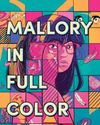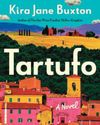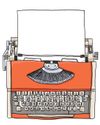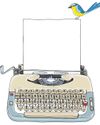
Climate change is one of those topics that can throw novelists—and everyone else—into a fearful and cowering silence. When the earth is losing its familiar shapes and consolations, changing drastically and in unpredictable ways beneath our feet, how can we summon our creative resources to engage in the imaginative world-building required to write a novel that takes on these threats in compelling ways? And how to avoid writing fiction that addresses irreversible climate change without letting our prose get too preachy, overly prescriptive, saturated with despair?
If there is any comfort to be had here, perhaps it lies in the number of novels written over the last several decades that have taken on this immensely challenging subject from such a wide variety of creative angles. Books like Octavia Butler’s Parable of the Sower, in which a family struggles to survive in a ravaged near future America and the young protagonist creates a new community based on principles of sustainability and collective action. Or Kim Stanley Robinson’s Ministry for the Future, a sprawling story of global despair and international cooperation featuring dozens of points of view and showcasing how individual actions and policy changes might intertwine in response to catastrophe. The setting of Téa Obreht’s recently published The Morningside is a reimagined Manhattan devastated by coastal flood yet still thrumming with the mysteries and stories that sustain its thinned-out population.
This story is from the July - August 2024 edition of Writer’s Digest.
Start your 7-day Magzter GOLD free trial to access thousands of curated premium stories, and 9,000+ magazines and newspapers.
Already a subscriber ? Sign In
This story is from the July - August 2024 edition of Writer’s Digest.
Start your 7-day Magzter GOLD free trial to access thousands of curated premium stories, and 9,000+ magazines and newspapers.
Already a subscriber? Sign In

What Is Your Story Question?
Revision and editing advice to take your first draft to the next level.

Writing for the People We Hope to Become
Elisa Stone Leahy's new middle-grade novel, Mallory in Full Color, tackles the in-between moments of adolescence, when who we are and who we want to become collide.

Creating Community
Whether hot off the presses or on the shelves for years, a good book is worth talking about.

Pat Barker
The Booker Prize-winning author of Regeneration shares the role characters play in developing novel ideas and explains what appeals to her about reimagining mythology.

How to Write in Different Genres
Emiko Jean and Yulin Kuang share tips and strategies for how they successfully write in different genres and mediums.

The Shortest Distance Between Two Points
Ten tips for writing a novel with 100-word stories.

Mayfly Marketing
How to sell your novel in a short-attention-span world.

"You'll be a great essay".
How to write six types of personal essays by finding the funny in your life.

The Idea Factory
Tired of staring at an empty screen? Unlock your inner fiction generator with these surprising inspiration techniques.

Seinfeld Was Right: That's a Story
Use mundane moments from everyday life to create stories that pack a punch.